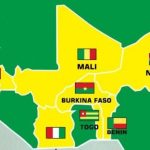The African Continental Free Trade Area (AfCFTA) represents one of the most ambitious economic integration projects in the world. Officially launched in 2021, this agreement aims to create a single market of 1.3 billion people and a GDP exceeding $3.4 trillion. However, while Nigeria, Africa’s largest economy, is a signatory, its commitment to the implementation remains uncertain. Can Nigeria fully leverage the AfCFTA to consolidate its position as an economic leader in Africa?
Economic Potential and Challenges
Nigeria boasts the largest population and GDP in Africa. Its economy is highly diversified, with sectors such as agriculture, oil, manufacturing, and services playing crucial roles. The AfCFTA offers significant opportunities for Nigerian businesses, allowing them to expand their markets beyond ECOWAS and reduce trade barriers across the continent.
However, challenges persist. Nigeria has long been wary of regional agreements, fearing an influx of cheap goods that could undermine local industries. The country initially hesitated to sign the AfCFTA due to concerns about unfair competition and the dominance of more industrialized economies like South Africa and Egypt. There are also logistical challenges, such as poor infrastructure, customs inefficiencies, and insecurity in certain regions, which could hinder effective participation in free trade.
Strategic Opportunities for Nigeria
To fully benefit from the AfCFTA, Nigeria must address several key areas:
1. **Strengthening Industrial Capacity**: Nigeria needs to boost its manufacturing sector to compete effectively with other African economies. This requires investment in technology, infrastructure, and human capital development.
2. **Improving Infrastructure**: Roads, ports, and logistics networks must be modernized to facilitate trade within Africa. Delays at Nigerian ports, for instance, remain a major bottleneck for exporters.
3. **Policy Reforms and Trade Facilitation**: The government must streamline customs procedures and reduce bureaucratic obstacles that hinder trade. Encouraging digital solutions and adopting a transparent regulatory framework are crucial steps.
4. **Enhancing Regional Diplomacy**: Nigeria should take a leadership role in shaping AfCFTA policies to ensure fair trade rules and protect its strategic interests.
Conclusion
The AfCFTA presents a golden opportunity for Nigeria, but it requires strategic action to capitalize on its benefits. With the right policies, investments, and regional engagement, Nigeria can strengthen its economic position and lead the transformation of intra-African trade. The coming years will be decisive in determining whether the country can turn this agreement into a genuine engine of growth or miss out on
a historic opportunity.









